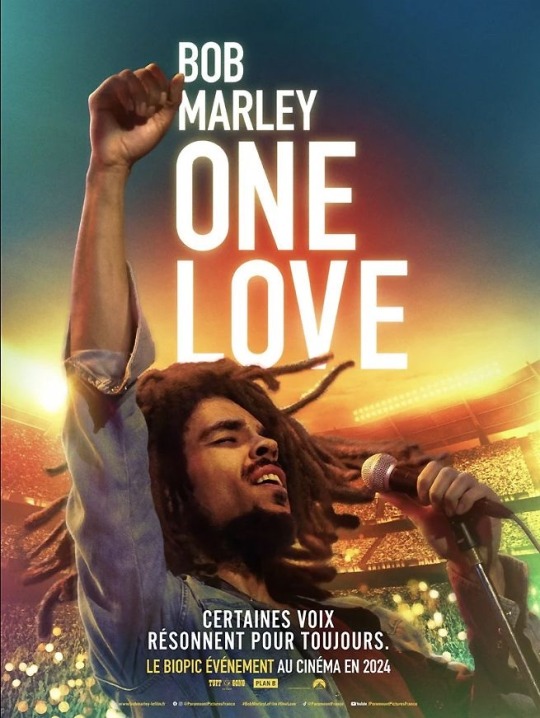#bob marley film
Text
This is your flashing lights warning for Bob Marley: One Love. Two incidents of rapid camera flashing early in the film (possibly others that I don't remember). You might need to tread carefully if you have photosensitive epilepsy
#epilespy warning#epilepsy#photosensitive epilepsy#photosensitivity#photosensitive warning#bob marley#bob Marley film#bob marley one love
18 notes
·
View notes
Text
One Love film review: Part Three
Landmarks are almost always accompanied by music and the film’s soundtrack has a lot to offer in regards to the part it plays in telling the story well. Some standout moments occur such as the faded version of ‘No Woman No Cry’ echoing in the background as Bob lovingly stays beside Rita when she ends up unconscious and injured with a bullet wound, and literally ‘Jammin’’ in the studio with the Wailers as they record songs for Exodus. Pivotal moments are made when Bob debuts or plays a song, whether its to a crowd of thousands of people during the Europe tour or to his family around the fire. For him, reggae meant home and when he was playing, he was returning.
The clashing of colours in the cinematography when we transition from Jamaica to London is a hint of the challenges and shifts that the group face when recording and playing there. Although Bob witnesses this firsthand, especially during an altercation with the police in Trafalgar Square, he manages to thrive and find inspiration when stumbling upon the UK punk scene that was, by the late 1970’s beginning to bubble up all over the country but was already embracing reggae and ska elements. He remarks their sense of rebellion and the stunning flashes of red in this scene refrains again when hiring a young guitarist to play with the group. Our still camera moment begins to dwindle as Bob spends more time with the group in London - a hectic energy emerges on the screen, with sharp cuts and arguments unfolding between band members. A sense of relief and the loss of control is calmly reversed through Bob finding resolution and redemption in his home country. The film’s conclusion comes when his final bow was finally realising his initial vision: promoting peace. He accepts death but welcomes the future, blissfully aware that he has made his mark.
Bob Marley’s story is definitely one about love, the love he had for Jamaica, for Rastafari, for his family and most importantly his music. The film, while not perfect, offers a very near, very convincing fleshing out of Bob Marley; his stories, his memories and his vision, one that has not been attempted before. While some gaps still remain, the film’s contribution to his legacy is another opportunity for everyone to know him a little better.
PS, I feel very sorry for the guy who played Mick Jagger for two seconds.
1 note
·
View note
Text
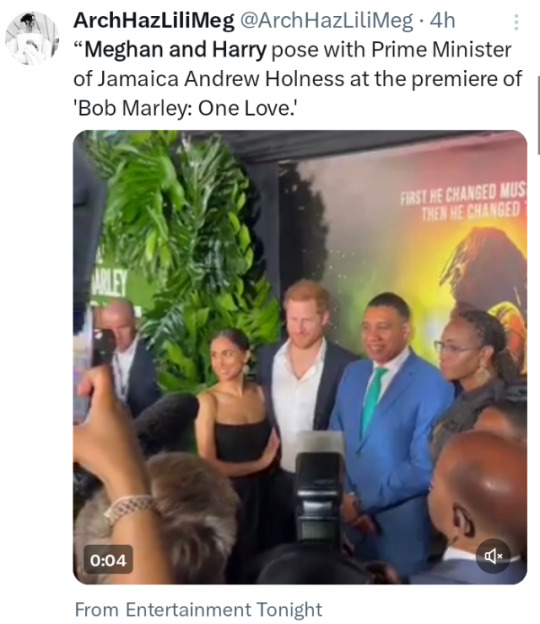
Harry and Meghan, promoting the Bob Marley film spells a big Red Alert. It's a British film
I thought the country was done with them?
0 notes
Text

Jamaica, Carribean
photography by @zoedargue https://zoedargue.com/
#Zoe Dargue Photography#zoe dargue#travel#travel photographer#jamaica#jamaika#caribbean#island#aesthetic#visit#glasgow photographer#original photography#film aesthetic#Black and White#vibrant#Bob Marley#reggae#rasta#vibe#vibes#candid#photoart#original photographers#photoblr#original photographers on tumblr#photographers on tumblr#Street Photography#photographers#photooftheday#trees
74 notes
·
View notes
Text
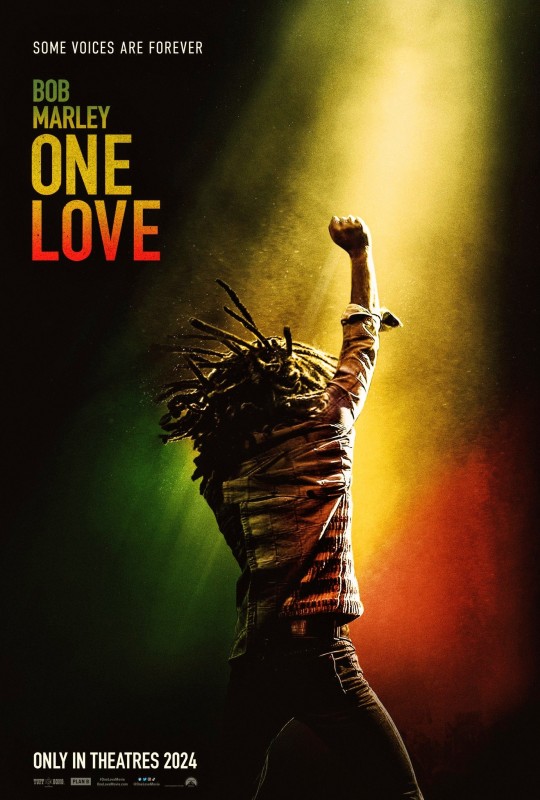
Kingsley Ben-Adir is Bob Marley - January 12, 2024.
#kingsley ben adir#peaky blinders#bob marley#2024#reggae#blm#cinema#black excellence#poster#black history#singer#musician#r&b#culture#icons#black men#soul#movie#2020s#film#bob marley one love#🎶
106 notes
·
View notes
Text
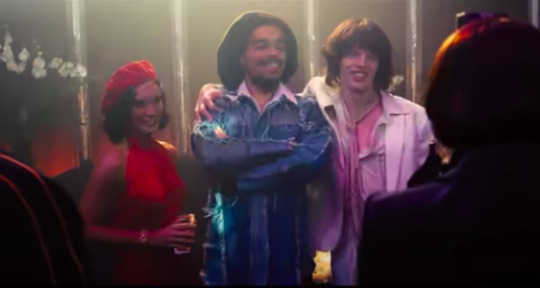
Chile, I know that ain't supposed to be Bianca and Mick Jagger in the new Bob Marley movie?! 🥴🤣
#bob marley#mick jagger#bianca jagger#the rolling stones#bob marley & the wailers#bob marley: one love#film#movie#2024#music#biopic
16 notes
·
View notes
Text
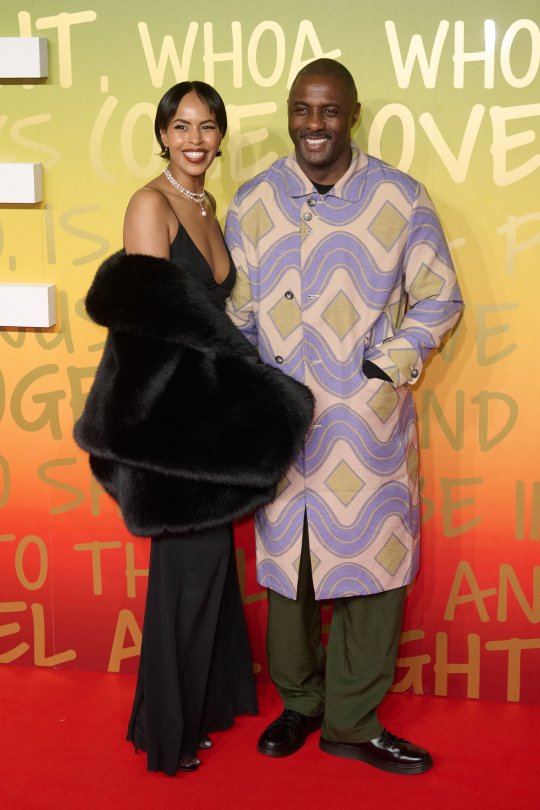
16 notes
·
View notes
Text

#felipeandradephotography#photography#nikonphotography#original photographers#film photography#fotografia#kodak#analog#fotografia analogica#analogico#bob marley#SoundCloud
6 notes
·
View notes
Text
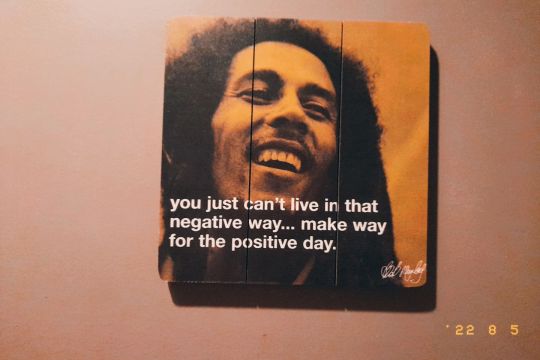
#grunge#soft grunge#90s#photography#vintage#cottage core#film camera#vintage vibes#pastel#vintage camera#vintage aesthetic#grunge aesthetic#wall decor#wall art#bob marley#quotes#philosophy#aphorisms#positibevibes
179 notes
·
View notes
Text
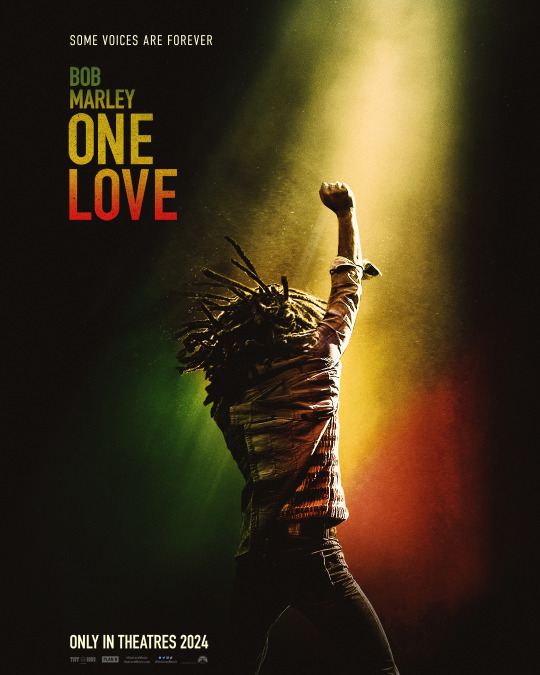
Poster for Bob Marley One Love
17 notes
·
View notes
Text
One Love film review: Part Two
One thing I really loved about this film was that the casting did not rely on blatant, plastic ‘look-a-like’ actors. Even though Kingsley Ben-Adir hardly resembles Bob Marley, this is made up for his surprisingly believable dialogue delivery and almost identical mannerisms; how Marley would casually light up a room with his infectious spirit, and his outspoken positivity regarding his Rastafarian roots. He is presented less as a faraway idol but rather a feeling man who allows his experiences, good or bad, to shape him, learning from them along the way. He walks through London’s underground among many different faces who do not recognise him, and he is nonchalant towards any threats. His world opens up with the director’s decision to not water down the script for Hollywood’s sake - it is presented as a pure Jamaican production, while not exactly English friendly (I myself had to research some terms but that this wasn’t a boring task!) the emotions and feelings are still there and still felt. We can see it in the closeness of relationships, body language and behaviour. The acting is powerful enough to overcome any language barriers. Ben-Adir’s charisma is an equal match for Lashana Lynch, who played Rita Marley. It’s quickly made apparent that she is his grounding force amongst his rapid rise, as she is the one who nudges Bob to return to Jamaica after his cancer diagnosis. Much emphasis is laid on the presence of women in his life, how they help to remove him from the clutches of arrogant fame as well as their influence on his music. I adored watching their relationship survive, overcoming struggles, sharing stories and reconnecting each other with their heritage. Biopics have a tendency to cast dark shadows over the people we thought we knew to make them have an ‘edge’ (worst case scenario, the domestic abuse scenes in the ambiguous Jimi Hendrix film, All Is By My Side) but in One Love, Bob Marley is brightened as his relationship with his wife is dealt with directly and realistically.
The band’s tensions feel very genuine too, with their quick back-and-forth conversations with each other. Making reggae music is seamless and effortless to all of them, as if it is a second nature. It is gorgeously harmonious with its equal share of musician banter that makes them likeable as well.
1 note
·
View note
Text
"Biopics of massively famous musicians are rarely very good, often because they stumble at the question of whom exactly they’re being made for. Are you making a movie for the already initiated die-hard fans yearning to see the life and times of their hero reflected back at them in exacting detail? Or is your movie a welcome mat for novices, a breezy jukebox of greatest hits aimed at cultivating new generations of fans, goosing streaming tallies and catalog sales in the process? Most musician biopics never manage to resolve this tension, in part because they’re usually also serving a third master, namely the musician’s estate, which tends to hold its own, very specific ideas about on-screen depiction.
Bob Marley: One Love, the new movie about the late reggae superstar that’s produced by Marley’s widow, Rita, along with some of his children, is a biopic that does seem to know whom it’s for, which isn’t a point in its favor. The film is directed by Reinaldo Marcus Green (King Richard) and stars Kingsley Ben-Adir as Marley, who does his best with the role despite not really looking or sounding much like the real Marley. (Within the past four years Ben-Adir has played Malcolm X, Barack Obama, and Bob Marley, quite the triptych of historical figures.) Lashana Lynch plays Rita and steals the film in every scene she’s in, even if the movie’s script fails to elevate her character past the archetypical suffering-yet-supportive wife of a genius.
Rather than taking a cradle-to-grave approach to Marley’s life, One Love instead focuses on a single period of Marley’s career, his self-imposed exile to England in the aftermath of the 1976 attempt on his life at his home in Kingston, during which time he recorded Exodus, the 1977 LP that marked his full breakthrough into global superstardom. The film opens with the assassination attempt, after which we’re quickly whisked to London, where the film depicts Marley writing most of Exodus’ songs in a cloying series of “eureka!” moments that tend to populate movies of this kind. Snippets of Marley’s classic “Redemption Song” surface as a recurring musical motif in the film, and in one of the last scenes, we see Marley performing the song for his awestruck family in a sappy flourish that’s also anachronistic. (By most accounts, Marley didn’t write “Redemption Song” until 1979.) Periodically we’re treated to a series of flashbacks of the singer’s earlier life, a clichéd device that this movie could have used more of: Brief forays into Marley’s conversion to Rastafarianism are surprisingly well done, and a scene of a teenage Marley and the Wailing Wailers performing “Simmer Down” at Coxsone Dodd’s Studio One is the best moment in the film.
One Love is an inspirational tale about a Great Man who used music to unite the world, one that reduces one of the most consequential and complicated artists of the 20th century to a walking fount of genial aphorisms, the guy who suggested we all get together and feel all right. As such, the film indulges a decadeslong public appetite for a particular imagining of Marley that his estate now seems depressingly eager to feed. It’s been 42 years since Marley died of a rare form of melanoma at age 36, and I’m not sure there’s a musician who’s more literally iconic: Go to any commercial district in any part of the world and within minutes you’ll find an opportunity to buy something bearing Marley’s likeness. In the United States, Marley has been a staple of dorm-room walls for generations: The casual and underinformed co-optation of Marley by American bro culture has even inspired a recurring meme in which Marley’s name is erroneously affixed to an image of Jimi Hendrix.
To a certain brand of musical cynic, Marley has become the embodiment of a musician whom people own posters and T-shirts of but don’t actually listen to, which isn’t totally fair to most of the owners of those posters and T-shirts. Some of Marley’s music is still enormously popular: His 1984 greatest hits compilation Legend is currently enjoying its 820th week on the Billboard 200, a position it will likely maintain for the foreseeable future given One Love’s early, strikingly robust box-office projections. The only album that’s spent longer on the chart is Pink Floyd’s Dark Side of the Moon.
But in the pop-cultural imagination, Legend has completely eclipsed everything else Marley ever released. The album has sold more than 15 million copies in the United States alone, while no other Marley LP has sold even 1 million stateside. From a purely mathematical standpoint, this would indicate that for many fans, Legend is the first and only Marley album they’ll ever listen to. I’m not sure there’s another greatest hits compilation that has played such an outsize role in the public definition of an artist.
Legend is a fine little collection, but the idea that it’s some sort of one-stop synopsis of Marley’s career is absurd. For starters, 10 of its 14 tracks date from the period of 1977–80, a four-year time frame that represents the height of Marley’s global popularity but is a relatively minuscule cross section of a staggeringly prolific, nearly two-decade-long recording career. (Five of Exodus’ 10 tracks are included on Legend, which I suspect is one reason that One Love is so invested in the album’s significance.)
This period also coincides with a time when Marley’s music seemed to take a step back from revolutionary politics, a tack that may have been driven at least in part by the aforementioned assassination attempt. The Marley canonized on Legend is not the Marley who sang “I feel like bombin’ a church/ Now that you know that the preacher is lyin’ ” or who called for “burnin’ and a-lootin’ tonight … burnin’ all illusion tonight” or declared that “Rasta don’t work for no CIA.” The dominance of Legend in the U.S. is particularly striking when one considers that Marley’s highest-selling album in this country during his lifetime was 1976’s Rastaman Vibration, which peaked at No. 8 on the Billboard 200 and includes such overtly political tracks as “Crazy Baldhead,” “Rat Race,” and “War.” Legend doesn’t include a single track from Rastaman Vibration, instead opting for romantic fare like “Is This Love” and “Waiting in Vain” and feel-good anthems like “One Love/People Get Ready” and “Jamming.” (For an excellent deep dive into the history and legacy of Legend, I recommend this article from the Ringer earlier this week.)
One Day’s Director Has No Regrets About the Movie’s Controversial Ending
Legend’s preeminence has helped turn Marley into the musical equivalent of a tourist destination, at which One Love is just one more cozy attraction. This is worse than a shame, because the real Bob Marley was one of the most remarkable musical talents of the 20th century. As a songwriter, he was so prolific that music seemed to pour out of him, a quality that has sometimes led to a naturalization of his gifts that veers into exoticizing primitivism. (One Love certainly partakes in this.) But rather than being some carefree savant, Marley was a fiercely disciplined and ambitious artist from the very beginning. He wrote and recorded his first single, “Judge Not,” in 1962 at the age of 16, and it remains an astonishing debut, an effortlessly catchy melody sung by a voice that sounds both nervous and supremely confident in a way that only a teenager can manage.
By the time he signed to Island Records in 1972 and began his ascent to international superstardom, Marley had already written a lifetime’s worth of great songs. He had a preternatural ear for hooks and crafted songs that were ready-made hit records, three-minute gems of perfectly crystalized musical ideas. As a singer, his indelible tenor rasp and thrillingly improvisational style were the byproducts of an extraordinarily well-honed sense of intonation and time. And during the 1970s, he fronted what might have been the best band on the face of the earth, grounded in the peerless rhythm section of drummer Carlton Barrett and bassist Aston “Family Man” Barrett, the latter of whom died earlier this month at age 77. (Aston’s son and namesake, an accomplished musician in his own right, plays his father in the film.)
One Love doesn’t know how to begin exploring this artist and his art in any way that even begins to be interesting. Instead it just feeds back the same sanitized and saccharine idea of Bob Marley to the same audience who has been eating that up for generations. It’s a movie about a poster. Over the end credits of One Love, archival performance clips of Marley flash onto the screen, and for a few moments we’re treated to sounds and images that are infinitely more magnetic and thrillingly alive than anything we’ve seen over the preceding 100-ish minutes. That Bob Marley, and the extraordinary body of music he left behind, is still out there for those who go listening for it, but this movie isn’t where you’ll find him."

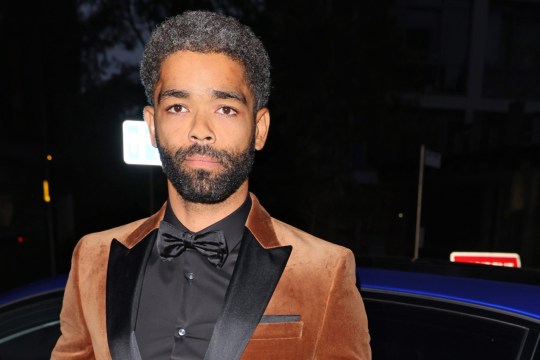
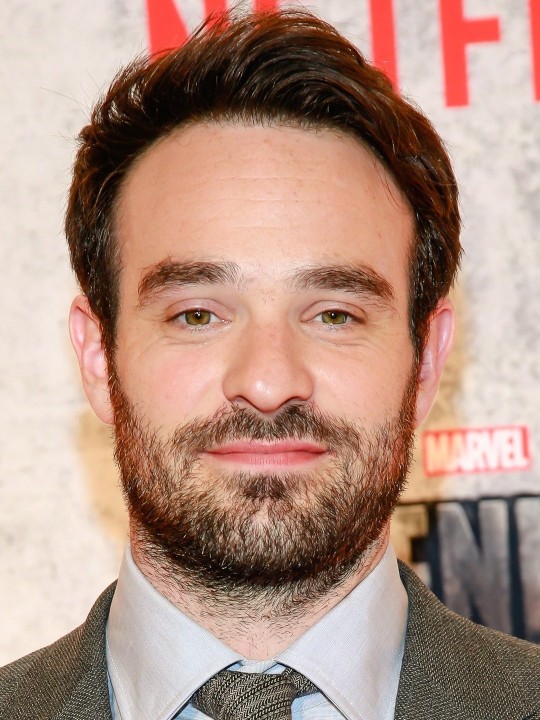
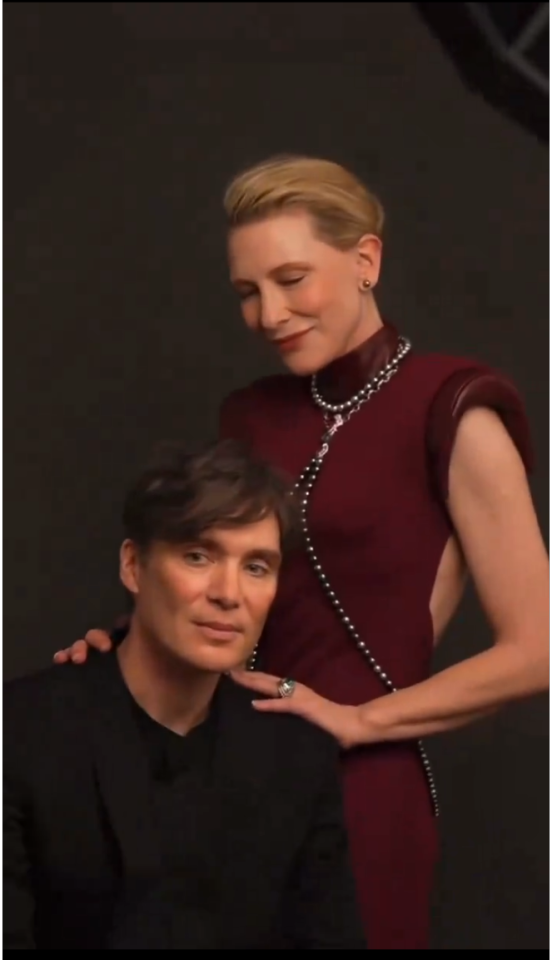


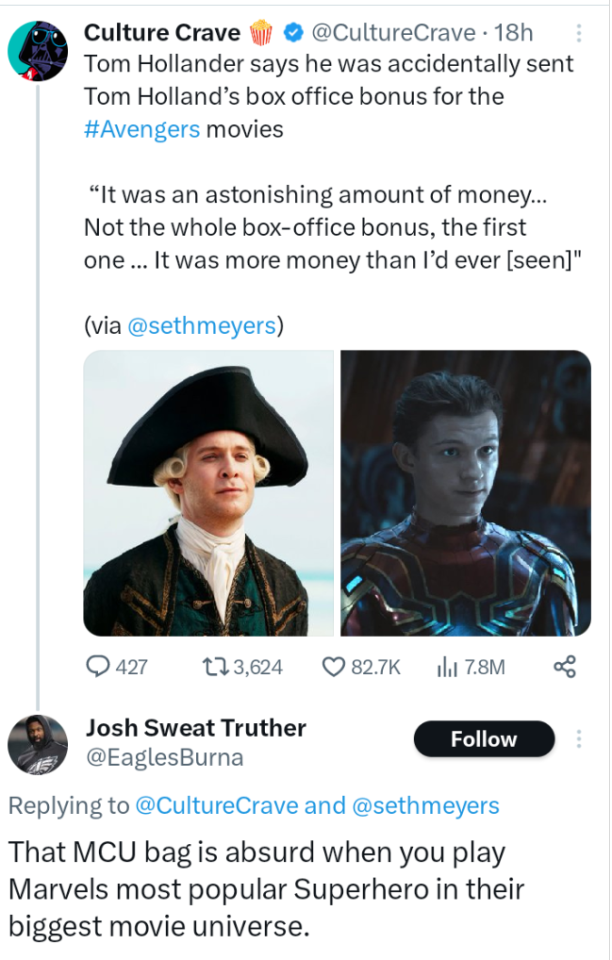

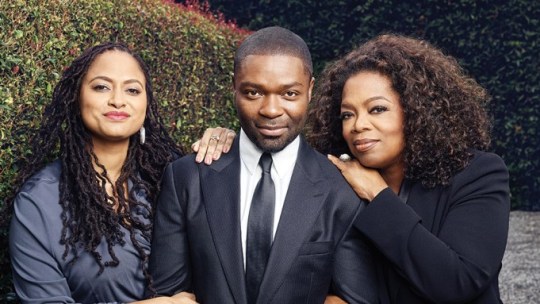
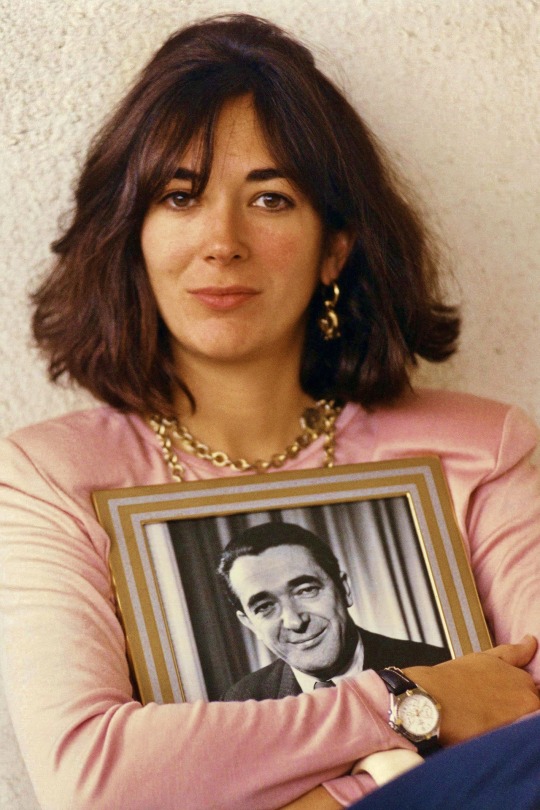
#Jamaica and The Legendary Marley Family Sell Patriarch Bob Marley Down The River For Weak Tepid White Washed One Love#Starring British Lavender Mafia Boy Kingsley Ben Adir#Irish Mob#Corrupt British Film Industry#British Thugs Allowed To Play Historic Black Figures#Malcolm X#Barack Obama#Hollywood Gay Mafia Connections#Scientology#Sony Pictures David Geffen#Warner Bros#David Zaslav#IAC#Barry Diller#Kingsley Ben Adir#David Oyelowo#Tom Hollander#Kristen Stewart#Elton John#Cillian Murphy#Stephen Fry#Mark Gatiss#Capote and The Swans Star Used In Threat Against Spiderman Star Tom Holland#British Parliament#BBC#ITV#Jamaica Compromised#Charlie Cox#Daredevil
7 notes
·
View notes
Text

Jamaica, Carribean
photography by @zoedargue https://zoedargue.com/
#Zoe Dargue Photography#zoe dargue#travel#travel photographer#jamaica#jamaika#caribbean#island#aesthetic#visit#glasgow photographer#original photography#film aesthetic#Black and White#vibrant#Bob Marley#reggae#rasta#vibe#vibes#candid#photoart#original photographers#photoblr#original photographers on tumblr#photographers on tumblr#Street Photography#photographers#photooftheday#sea
7 notes
·
View notes
Text
'Bob Marley: One Love' Review
#BobMarleyOneLove Review: "The second half of this film is where Ben-Adir and Lynch truly shined, and his journey into stardom was executed well. The formation of the “Exodus” album and the European leg of the tour carried this film."
By: Amanda Guarragi
When we think about Bob Marley, we remember his everlasting impact on music. What started as an outlet to express his feelings towards the violence and corruption in Jamaica became a global protest for peace and unity. His music has been associated with freedom fighters and peaceful protests for years. It’s important to note that Marley felt he had a purpose for his community…

View On WordPress
#blogger#Bob Marley#Bob Marley: One Love#Cinema#Entertainment#Film Critic#Film Reviews#Films#Kingsley Ben-Adir#Lashana Lynch#movie reviews#Movies#Reinaldo Marcus Green#Reviews#Rita Marley#Writer
4 notes
·
View notes
Text
youtube
Bob Marley: One Love - Teaser Trailer
Starring Kingsley Ben-Adir, & Lashana Lynch
Releases January 12, 2024 (USA)
11 notes
·
View notes
